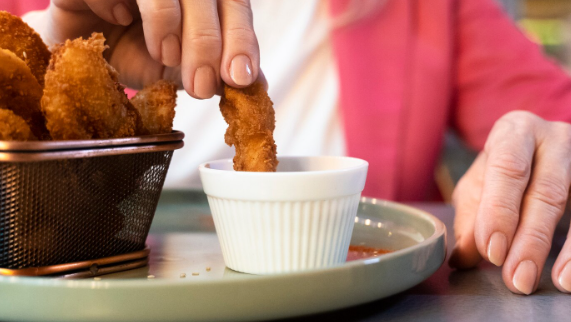As concerns about environmental sustainability grow, the importance of adopting eco-friendly practices in various industries has become more profound. In recent years, the food packaging industry has made significant strides towards sustainability by incorporating biodegradable food packaging solutions. These innovative alternatives to traditional packaging materials not only help reduce waste but also minimise environmental impact.
The Environmental Impact of Traditional Packaging
Conventional food packaging materials, such as plastics and non-recyclable composites, contribute significantly to environmental pollution. They are often derived from non-renewable resources and can take hundreds of years to decompose, if not recycled. This leads to prolonged environmental degradation and contributes to the growing problem of landfill accumulation.
What Makes Packaging Biodegradable?
Biodegradable packaging refers to materials that are capable of being broken down by natural processes into non-toxic components. These materials typically decompose within a shorter timeframe compared to conventional plastics. Biodegradable packaging is often made from natural substances such as cornstarch, sugarcane fibre, or other organic materials that can easily return to the earth, reducing pollution and enabling nutrient recycling in ecosystems.
Advantages of Biodegradable Packaging
One of the primary benefits of biodegradable food packaging is its reduced environmental footprint. By decomposing naturally, it helps to alleviate the pressure on landfill sites and reduces the need for waste management interventions. Furthermore, these materials can be industrially composted, thus offering a circular solution that can enrich soil fertility.
Promoting Resource Efficiency
Biodegradable packaging can also enhance resource efficiency due to its ability to be sourced from renewable materials. This not only diminishes the reliance on fossil fuels but also encourages the sustainable harvesting of raw materials. Ultimately, it aids in reducing carbon emissions linked to the production and disposal of packaging materials.
Consumer and Business Benefits
Switching to biodegradable food packaging can also be advantageous for businesses and consumers alike. It aligns with the growing consumer demand for sustainable products, potentially enhancing brand loyalty and market competitiveness. Additionally, utilising biodegradable options can help businesses comply with regulatory pressures to reduce environmental impact.
Challenges in Implementing Biodegradable Solutions
Despite the advantages, the adoption of biodegradable packaging comes with its challenges. For instance, the cost of production for biodegradable materials can be higher than that of traditional plastics. This can be a barrier for small businesses or industries with tight profit margins. Additionally, proper disposal and composting facilities must be in place to maximise the environmental benefits.
The Role of Policy and Regulations
Policy measures and regulations play a crucial role in driving the adoption of biodegradable packaging. Governments and international bodies can promote the usage of eco-friendly materials through incentives, subsidies, and stringent regulatory frameworks. By setting enforceable standards, policymakers can encourage industries to transition towards sustainable practices.
The Future of Biodegradable Packaging
The future of biodegradable packaging looks promising as innovation and consumer awareness continue to rise. Advances in material science are paving the way for more cost-effective and functional biodegradable materials. As the global community becomes more attuned to environmental issues, the demand for sustainable solutions is likely to escalate.
Integrating Biodegradable Packaging on a Global Scale
To effectively integrate biodegradable packaging solutions on a global scale, collaboration between stakeholders, including manufacturers, policymakers, and consumers, is essential. By developing a holistic approach that considers the entire lifecycle of packaging, society can achieve greater sustainability goals.
Conclusion
Biodegradable food packaging represents a pivotal step towards a sustainable future. As industries and consumers alike recognise the benefits, the shift to biodegradable alternatives becomes a practical choice for addressing environmental concerns. By prioritising sustainability, the food packaging industry can contribute significantly to reducing pollution and promoting a healthier planet.









